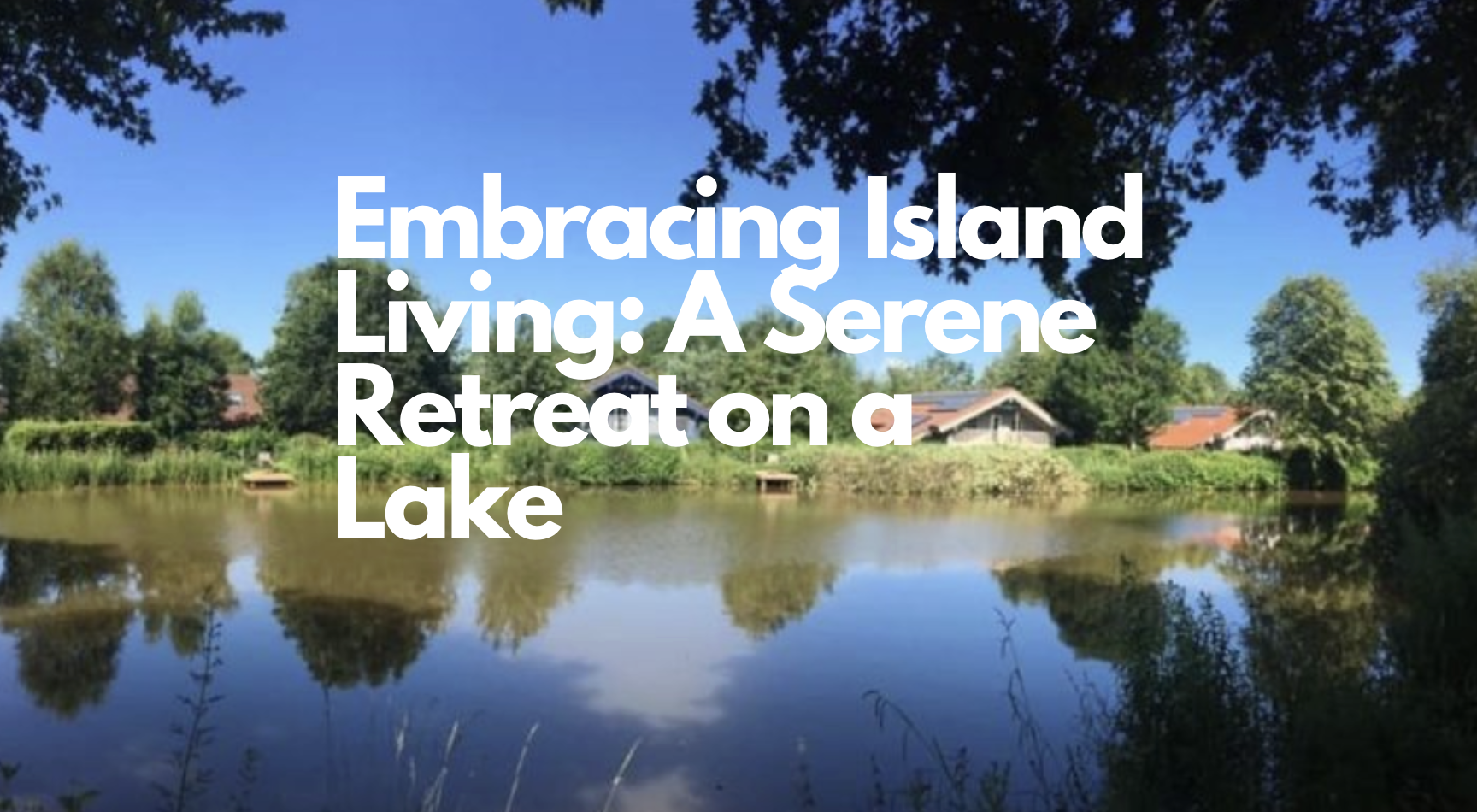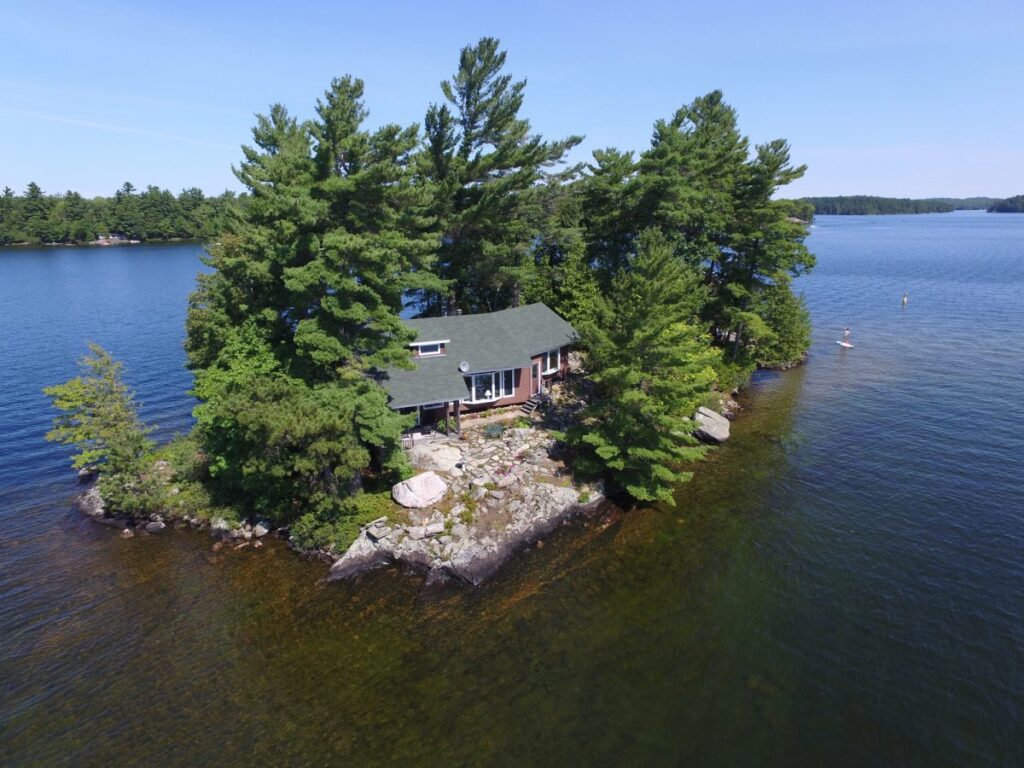
Nestled amidst the tranquil waters of a serene lake lies a unique and enchanting lifestyle – living on an island. Far removed from the hustle and bustle of city life, island living offers a sense of seclusion and connection with nature that is unparalleled. In this blog post, we will delve into the captivating experience of residing on an island on a lake, exploring topics ranging from access and seasonal challenges to utilities and logistics.
Access
One of the defining features of island living is the sense of isolation it provides. Access to the island is typically limited to boats, kayaks, or other watercraft, adding an element of adventure to everyday life. Residents may have their own private dock or rely on communal docking facilities. While this mode of transportation imbues the island with a sense of exclusivity and privacy, it also requires careful planning, especially during inclement weather conditions or when transporting goods and supplies.

Seasonal Issues
Living on an island on a lake brings forth a unique set of seasonal challenges. During the warmer months, residents revel in the beauty of their surroundings, basking in the sun and enjoying water activities such as swimming, fishing, and boating. However, as the seasons change, so do the dynamics of island living. Harsh winters can pose significant obstacles, with frozen waterways making access to the mainland more difficult and necessitating alternative methods of transportation such as snowmobiles or ice bridges. Additionally, the isolation of island living means residents must be self-sufficient in preparing for winter, stockpiling supplies and ensuring their homes are equipped to withstand the elements.
Utilities
While the allure of island living lies in its simplicity and connection with nature, modern amenities are still a necessity. Providing utilities to an island presents its own set of challenges, with considerations such as electricity, water, and sewage systems requiring innovative solutions. Many island communities rely on generators or solar power for electricity, while water may be sourced from wells, rainwater collection systems, or treated lake water. Managing sewage and waste disposal in an environmentally sustainable manner is also paramount, with composting toilets and septic systems being common solutions.

Challenges
Despite its idyllic setting, island living is not without its challenges. The remote location can make everyday tasks more time-consuming and labor-intensive, from grocery shopping to medical emergencies. Dependence on watercraft for transportation means residents must constantly monitor weather conditions and navigate potential hazards such as storms and rough waters. Furthermore, the close-knit nature of island communities can sometimes lead to conflicts or tensions among residents, necessitating effective communication and conflict resolution strategies.
Logistics
Navigating the logistics of island living requires careful planning and organization. Residents must consider factors such as transportation, communication, and emergency preparedness to ensure their safety and well-being. Maintaining a reliable supply chain for essentials such as food, fuel, and medical supplies is crucial, as is having contingency plans in place for emergencies. Clear communication channels, both within the island community and with the mainland, are essential for coordinating activities and responding to emergencies effectively.
Conclusion
Living on an island on a lake offers a unique blend of tranquility, adventure, and self-sufficiency. From the challenges of seasonal changes to the logistics of everyday life, island living requires resilience, resourcefulness, and a deep appreciation for the natural world. Despite its remote location and occasional hardships, the rewards of island living are plentiful – from breathtaking sunsets and starlit skies to the sense of camaraderie and connection fostered within tight-knit island communities. For those willing to embrace the adventure, living on an island on a lake offers a truly unforgettable experience.
Posted by Scott Freerksen “The Lake Guy”
